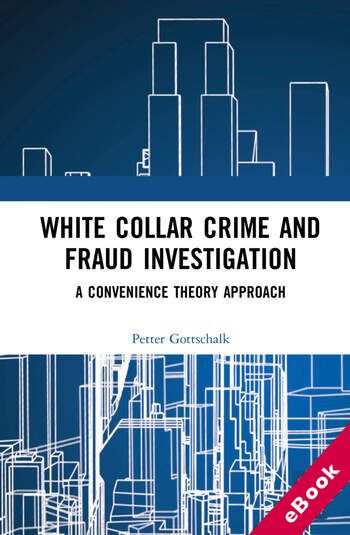
The device(s) you use to access the eBook content must be authorized with an Adobe ID before you download the product otherwise it will fail to register correctly.
For further information see https://www.wildy.com/ebook-formats
Once the order is confirmed an automated e-mail will be sent to you to allow you to download the eBook.
All eBooks are supplied firm sale and cannot be returned. If you believe there is a fault with your eBook then contact us on ebooks@wildy.com and we will help in resolving the issue. This does not affect your statutory rights.
This book applies a structural model of convenience theory to suspected crime and a maturity model to investigation reports. Evidence of white-collar convenience themes in each case study is derived from internal investigation reports by fraud examiners.
The study of white-collar offenders has received increased attention in recent years. This book contributes to our understanding of financial crime by privileged individuals in professional settings by identifying convenience themes for offenders. Based on the theory of convenience, the work presents a number of case studies to identify convenience in financial motive, organizational opportunity, and willingness for deviant behavior. Case studies presented are from Austria, Asia, Congo, Denmark, Germany, Norway, Sweden, and the United States.
The book will be of interest to researchers and academics in Law, Criminology, Business, and Sociology. It will also provide a valuable resource for fraud examiners, defense attorneys, police investigators, and prosecutors.